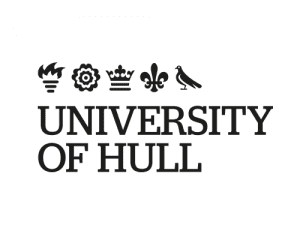This three-year, part time, course, validated by the University of Hull, has been designed to offer a flexible approach to the integration of theory and practice.
The threshold concepts embedded in the course include a sophisticated opportunity to approach counselling and therapeutic theories from different perspectives. Rather than being taught theoretical approaches in separate modules, and then seek integration, the aim is to explore theoretical concepts together from the start of the course in order to challenge students to link concepts to practice in a reflexive free flowing manner.
The course is designed to encourage the multiple contexts of reflexivity at every stage of the student’s learning. It is acknowledged that students will be coming on to the course from different theoretical perspectives and major shifts in their perception and understanding of client work will be expected.
Students will be encouraged to examine their own personal constructs and the impact they have on the work with clients in diverse settings in the UK in the 21st century.
An emphasis on the importance of supervision will run throughout the course as well as access to continuing professional development (CPD).
The programme is accredited by COSRT (College of Sexual and Relationship Therapists).
Key Information
The course is modular, with attendance on 18 days per year, taking place over a 10 month period in each year.
Clinical placements will be in an approved clinical setting and involve 150 hours of practice during the three years (a minimum of 50 hours with individuals and 100 hours with more than one person) This can include face to face, online and telephone counselling practice.
As COSRT student member there is a requirement to complete 50 hours of personal therapy and/or group therapeutic work, focused on awareness of self in relation to the other.
• These figures should include a minimum of 20 hours one-to-one personal therapy to be completed and evidenced during training.
Students are expected to work with individuals in the first year and with individuals, couples and families from the second year onwards.
Students are expected to organise their own clinical supervision whilst on placement.
Year 1 Post-graduate Certificate stage
Module 1, Theoretical Concepts: 20 credits
Module 2, Effecting Change: 20 credits
Module 3, Culture and Context: 20 credits
Year 2 Post-graduate Diploma stage
Module 4, Therapy with more than one person: 20 credits
Module 5, Working with Couples and Sexual Relationships: 20 credits
Module 6, Working with Groups and Families: 20 credits
Year 3 Masters stage
Module 7, Advancing Practice: 20 credits
Module 8, Contemporary Therapeutic Challenges: 20 credits
Module 9, Therapeutic Challenges and Beyond: 20 credits
All modules are subject to availability and this list may change at any time
Assessment is by a variety of methods such as case presentations and written assignments that are designed to assess the development of the student’s understanding, development and competence as a reflexive practitioner, working safely and ethically in a wide range of settings and contexts. Students are required to submit a portfolio, together with a supervisor’s report, at the end of each year.
Prospective students must have all of the following:
- Degree or equivalent qualification
- Evidence of counselling qualification
- Access to a practice base in an approved clinical setting, such as a counselling organisation, primary care trust or specialist NHS department
- Competence in the use of IT and regular access to the Internet
After successfully completing the course, students will be equipped to work in either the statutory or voluntary sector, or as an independent practitioner in the therapy field
Financial Support
UK students can take out a tuition fee loan to cover the cost of their course and a maintenance loan to cover living costs.
We also have a range of other financial support available.
Course Fees
UK
£2630.00, per year.
Additional Costs
Your Tuition fees cover the majority of costs associated with your course (including registration, tuition and assessment.)
There may be some extra costs that you might need to make, or choose to pay, for example:
• Books (you will have access to an extensive range of electronic books and journals from your module reading lists in the LRC, but you may want to buy your own copies)
• Printing and photocopying
• Trips and enhancement opportunities
- If your course includes a work placement, you may be required to pay for a Basic or Enhanced Disclosure and Barring Service (DBS) check.
Enquire about this course
To find out more and apply for this course, please contact us via the telephone number below.
